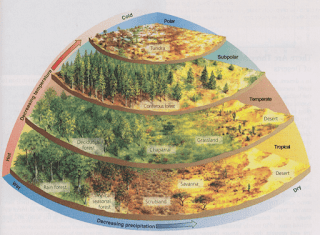Today is Earth Day. However, I will not be going on about environmental writing techniques or how to save the planet with the written word. (Please recycle your old drafts). Rather, I thought it best to talk about just what it takes for a writer to build a world, and how to offer it to the reader without creating too many unnecessary words.
When we set out into the world of fiction with a mind to create a new world for our reader - be it alternative history, sword-and-sorcery fantasy, sci-fi, dystopian future, or whatever - we have a lot of work to do. As the writer, we need to have this world virtually at our fingertips, along with all its little details. What's the currency? Forms of government? How many moons are there? A variety of intelligent species? Technological development? It's a big world out there, and it all depends on what the author wants.That being said, the author can limit this work by first understanding the story being presented. If this is about a scientific research team landing on an uncharted planet and checking it out for intelligent life, the writer can focus on the immediate aspects of how that plot develops. The environment, possible flora and fauna, any intelligent or hostile species - etc. Politics and economics might not be important, even if they exist. Rather, the focus is on the world surrounding the main characters and what their journey will uncover. If the plan is to have them discover a hidden race of highly intelligent, wealthy politicians, then prepare that. However, don't do what you don't need to do. You will understand the world better, but it will not benefit your story.
Furthermore, as you roll out this world, bring it out through the eyes and ears of the characters rather than a long, dramatic explanation of everything. In the case of a hi-tech, futuristic wonderland, it's fun to tell the reader about how the flying car has been around for a hundred years and that food is in pill form, but the reader does not hook in to the story. Rather, having a character fly into the nearest fly-thru restaurant, order his burger and fries and be given two pills accomplishes this but it engages the reader. This is the "show, don't tell" part of writing, and it engages the reader by forming a world around actions.
In fact, a lot of stories that show and don't tell have very rich, drawn-out backgrounds that we rarely get to hear about. This is the problem and the temptation with world-building - we make a whole planet with an expansive history, and want the reader to know everything we did. Therefore, we tell them - usually at the expense of the plot. This is the dreaded "info dump" - breaking away from the narrative to pour out a lot about a character's background, the past hundred years of a planet's history, its elaborate and fragile ecosystem, or whatever. Info-dumping usually feels like the hero's journey has pulled over at a rest stop to enjoy an infomercial about the writer's creativity. The reader is there for the hero, not the writer's ego. This is avoided when the author inserts those necessary details into character conversations and observations, or small descriptions placed in high-value areas where the reader will take note of something and register it for later.
Unfortunately, a lot of the work in world-building never makes it to the written page. It does, however, come off to the reader as a well thought-out world with depth and connection, which is the real end-game of creating your own special world. As a writer - just like as a person - your main job is to take care of the world you create, in order to ensure that others enjoy it as much as you do.
Okay - that was also a bit of Earth Day advice.


No comments:
Post a Comment